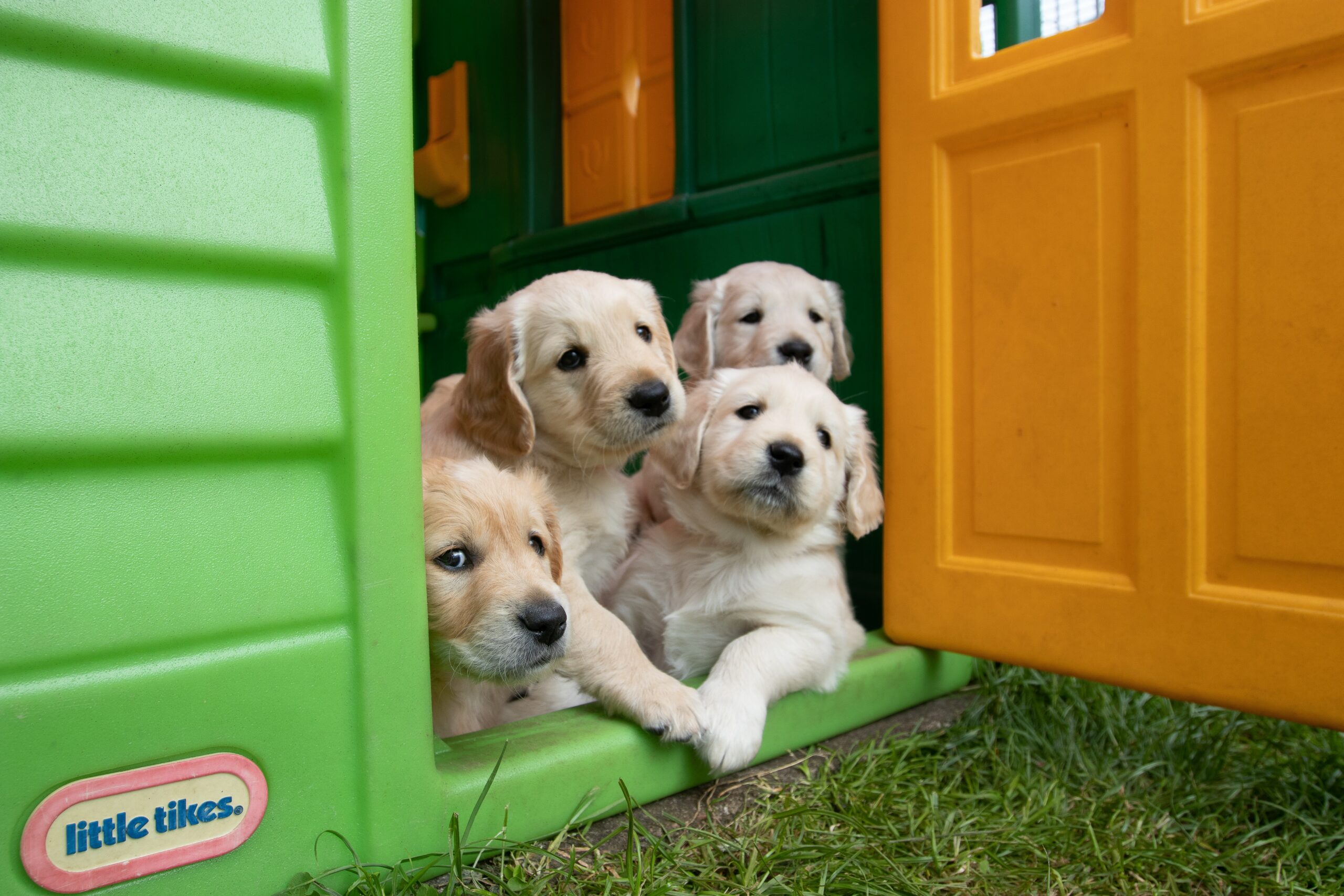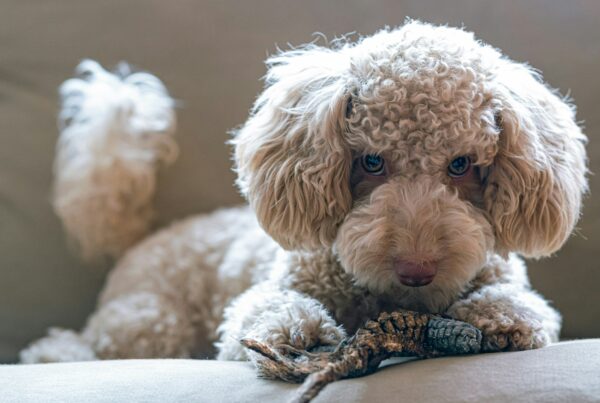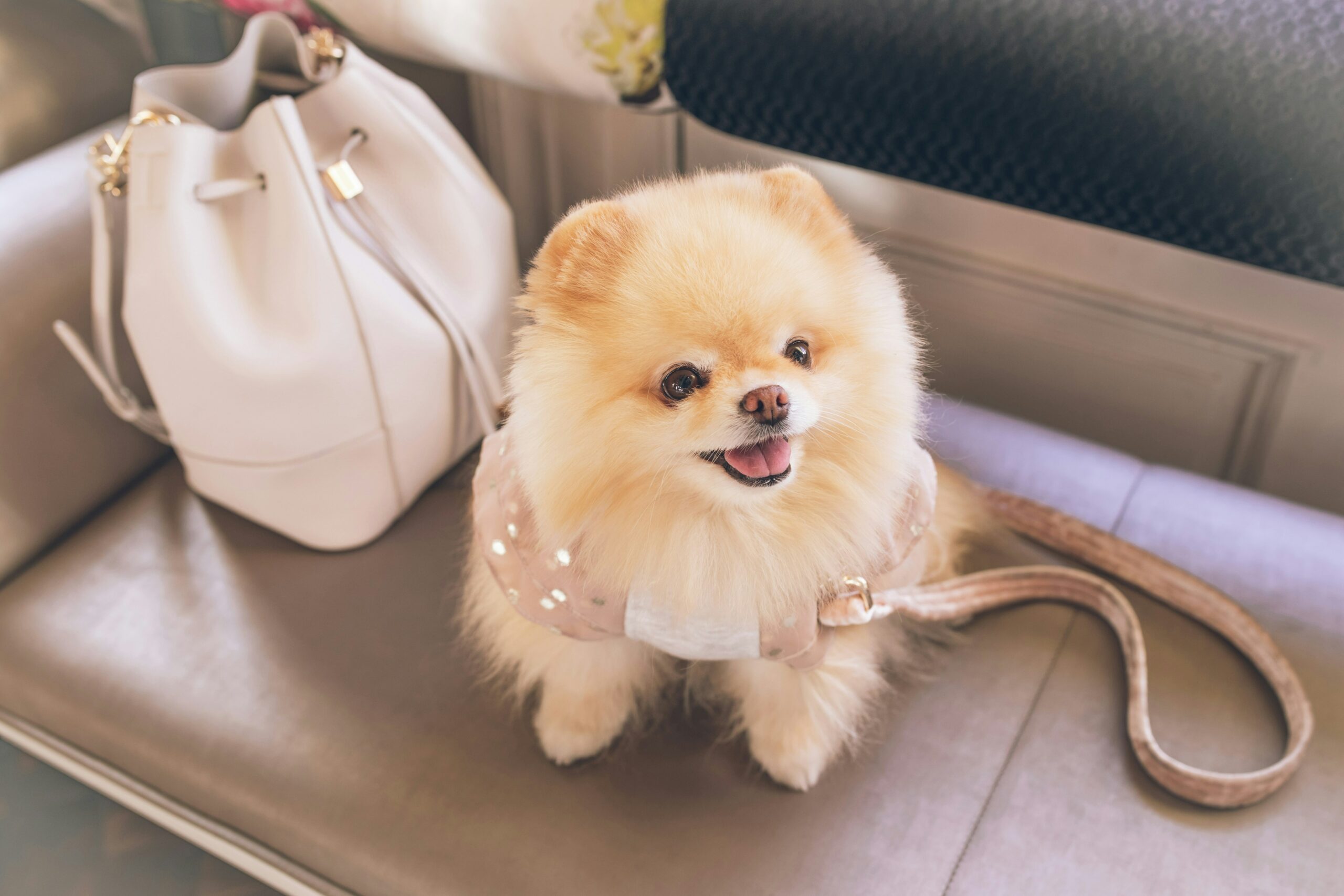Bringing a new canine family member to your home requires a lot of preparations – from buying proper dog food and toys to arranging a comfortable sleeping area to scheduling the first vaccines. However, with so many things to consider, it is easy to overlook one of the most important – developing a routine for your new puppy.
Creating a structured schedule for your puppy will not only contribute to a less stressful homecoming and ease its adjustment to other family members, but it will also allow you to avoid the chaotic first few weeks. And, trust us, all dogs can be pretty uncontrollable at young age – whether you are looking at German Shepherd or Jack Russell puppies.
You’ll find several helpful hints for creating schedules and establishing a routine for your little four-legged friend down below. They include scheduling potty breaks, developing feeding schedules, and planning playtime and walks. Continue reading to ensure that your puppy is happy and well-adjusted.
Scheduling Potty Breaks for a Puppy
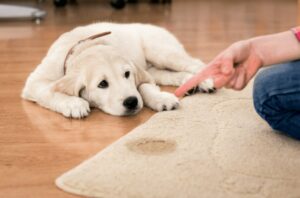
Potty breaks are an essential part of the puppy’s schedule. If your puppy is left in his crate for too long, he will not be able to hold his bladder and will need to relieve himself before you get home. Make sure that your puppy can get outside at least twice per day – once in the morning and once in the evening.
It is a good idea to put a pee pad (or newspapers) near the area where your puppy sleeps – that way, he can have a “potty spot,” which will make him more likely to go there when he needs to go. If you start establishing this habit at the early age of six weeks, it will become second nature to your puppy as he grows up.
Creating Feeding Schedules for a Puppy
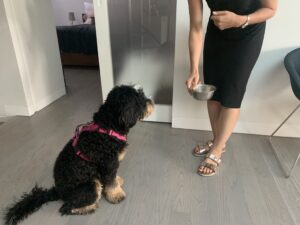
Puppies must eat several times per day – you’ll want to feed them once every three hours, at the very least. Puppies cannot be expected to regulate their own food intake, so they will need regular meals throughout the day.
This schedule must be maintained until they are about six months old – otherwise, they will have difficulty adjusting to normal feeding schedules after that age. After that, start gently shifting the schedule so that it suits your lifestyle.
Establishing Routine Hours
Puppies need routine hours. This means that they will need to go through most of their schedule during the same time every day. A canine’s body clock functions similarly to a human’s, so your puppy needs to have routine times for eating, sleeping, playing, and going outside.
Planning Playtime and Walks in a Puppy’s Schedule
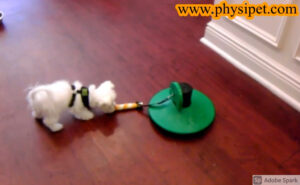
Puppy Playing with toy attached to Physipet
It is important for puppies to have plenty of time for exercise so that they grow into healthy and energetic dogs. They need daily walks and playtime in order to burn off steam and relieve boredom. These activities will help maintain a healthy weight level and prevent obesity later on in life.
You must be prepared to take your pup out on walks every day – even if it is just around the block. If you work full-time, then it is possible that someone else will need to take them out when you are away from home – you can ask a family member or hire a pet sitter.
Scheduling for Your Puppy’s First Vaccinations
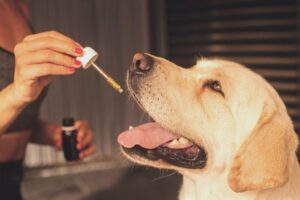
It is important to get your puppy vaccinated as soon as possible after he arrives. However, you should not bring your puppy in for the first vaccination until at least 12 weeks of age – this will help ensure that he has developed an adequate immune system.
In order to schedule your puppy’s first vaccination, you must bring him to an official veterinarian’s office for a checkup. The vet will examine your puppy and decide on a vaccination schedule.
Puppies should be vaccinated every three to four weeks until they are 16 weeks old. After that time, they will need to be vaccinated every year. If you are going to board your puppy or take him outside of the United States, he will need to get a rabies shot, which is required by law in all states except Hawaii. In addition, he will need to complete a series of vaccinations for travel – these shots will prevent him from getting sick while traveling abroad.
Final Note
Puppies need a lot of help getting comfortable in their new homes – that’s why it is so important to establish routines for them. Their sleep schedule, meal schedule, and play schedules should all be planned out well in advance.
If you are having trouble coming up with a plan, it may be helpful to look at the training methods used by dog trainers. They will have already determined how to create schedules for puppies, so they will be able to give you advice on the subject. You can also look for advice online.
Photo credit:
https://unsplash.com/photos/tV7JNH73cJg
Love our content? Share it with a friend or link it to social media. Like short clips of cute household pets? Training tips? Follow us on instagram @nydognanny or on YouTube at nydognanny. Have some news you needs to get to dog and cat parents stat? Email info@newyorkdognanny.com with your article pitch.

